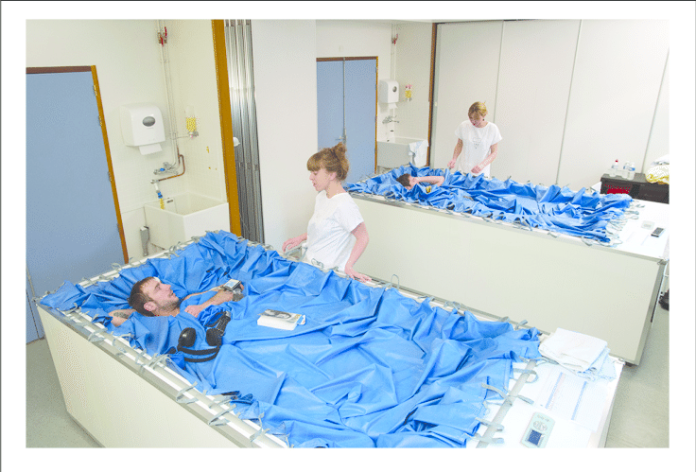The European Space Agency (ESA) is conducting a study where a group of volunteers will be paid £15,600 to lie in bed for two months. The purpose of the study is to observe the changes the human body undergoes in space and develop strategies to counteract them.
During the study, participants will remain in beds tilted 6° below the horizontal position with their feet up. Basic needs like meals, showers, and toilet breaks will be provided.
However, the study won’t be entirely pleasant. Volunteers will also undergo activities like cycling, spinning, and constant medical tests, while always keeping one shoulder in contact with the mattress. The ESA acknowledges that the job will be challenging but necessary for the advancement of human space exploration.
Astronauts experience similar physiological issues as elderly or bedridden patients on Earth. Prolonged periods in space impact their muscles and bones, causing muscle loss and altered blood flow. By monitoring the participants’ bodies, researchers aim to gain insights into these effects.
Additionally, this study marks the first time cycling is included in a bedrest study in Europe. The goal is to understand the potential benefits of artificial gravity as part of astronauts’ fitness routines on the International Space Station.
Currently, astronauts spend two hours per day exercising in orbit. Artificial gravity, if feasible, could offer a comprehensive solution to maintain a healthier body during long-duration space missions.


